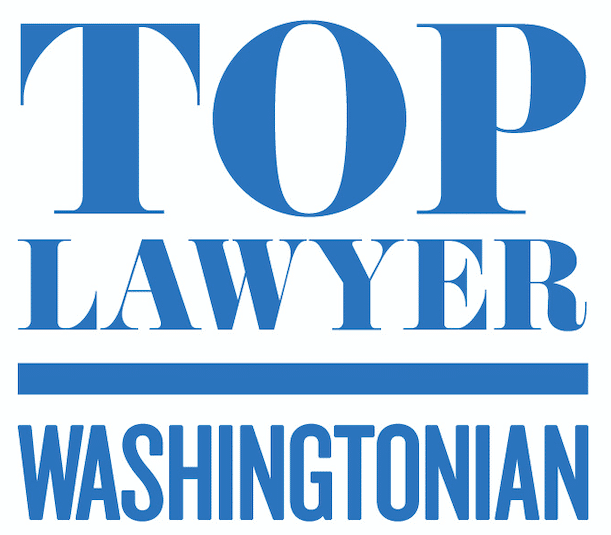According to the Ethics and Compliance Initiative’s 2018 Global Business Ethics Survey, 58% of top managers at companies experienced retaliation for raising ethics or compliance concerns. We have substantial experience representing corporate officers, including CEOs, CFOs, COOs, CISOs, CMOs, and CCOs in whistleblower retaliation matters.
Leading whistleblower firm Zuckerman Law represents whistleblowers nationwide. If you are seeking representation in a whistleblower retaliation or whistleblower protection case, click here, or call our whistleblower retaliation lawyers at 202-262-8959 to schedule a confidential consultation.
Click here to read reviews of our whistleblower retaliation lawyers from clients that we have represented in whistleblower rewards and whistleblower retaliation matters.
Are senior corporate managers and executives protected from retaliation?
Yes, there are federal and state law remedies for whistleblowers that have suffered retaliation for reporting fraud or other securities law violations. The primary federal remedies for whistleblowers in the financial services industry are the anti-retaliation provisions of:
- the Sarbanes-Oxley Act (SOX);
- the Dodd-Frank Act; and
- the Consumer Financial Protection Act.
There are important differences in these laws in the scope of coverage, the types of disclosures that are protected, the burden of proof, the statutes of limitations and remedies.
SOX protects employee disclosures of conduct that an employee reasonably believes constitutes securities fraud, shareholder fraud, bank fraud, mail fraud, wire fraud, or a violation of any SEC rule or regulation. SOX protects disclosures of violations that a whistleblower reasonably believes are likely to occur, even if such violations have not yet been committed.
A broad range of retaliatory actions are actionable under SOX, including discharging, demoting, suspending, threatening, harassing, or in any other manner discriminating against a whistleblower. Even disclosing the identity of a whistleblower has been held to be an adverse employment action under SOX.
To prevail under SOX, a whistleblower must demonstrate by a preponderance of the evidence that: (1) he or she engaged in protected activity; (2) the employer knew of the whistleblower’s protected activity; (3) the whistleblower suffered an adverse personnel action; and (4) the protected activity was a “contributing factor” in the adverse action.
The contributing-factor causation standard is broad and forgiving. A whistleblower need only proffer evidence that his or her protected activity played any role whatsoever in the adverse action. Even if the protected activity is one of many reasons why the employer took the adverse action, the whistleblower prevails in establishing contributing-factor causation. To prove causation, a whistleblower may use circumstantial evidence including “motive, bias, work pressures, past and current relationships of the involved parties, animus, temporal proximity, pretext, shifting explanations, and material changes in employer practices, among other types of evidence.” Bobreski v. J. Givoo Consultants, Inc., ARB No. 13-001 (U.S. Dep’t of Labor Aug. 29, 2014).
An employer can overcome a whistleblower’s showing of contributing-factor causation only by demonstrating by clear and convincing evidence that it would have taken the same adverse action against the whistleblower had the whistleblower not engaged in protected activity. It is not sufficient for an employer to demonstrate that it relied on legitimate reasons in addition to the employee’s protected activity when deciding to take the adverse action; no matter how minuscule the protected activity was in the employer’s decision, it is a contributing factor unless the employer would have—not merely could have—taken the same adverse action absent the protected activity.
The anti-retaliation provision of the Dodd-Frank Act also protects disclosures about potential violations of federal securities laws, but under the Supreme Court’s recent ruling in Digital Realty Trust, Inc. v. Somers, 138 S. Ct. 767 (2018), a whistleblower must have reported a possible securities law violation to the SEC in order to qualify for protection against retaliation. However, once the whistleblower has provided information about a potential securities law violation to the SEC, the whistleblower’s internal disclosures will also be protected. Moreover, if the whistleblower reports the possible violation to the SEC Office of the Whistleblower, the whistleblower may be eligible for a monetary award (see details below).
The CFPA protects disclosures made to an employer, to the Consumer Financial Protection Bureau or any State, local, or Federal, government authority or law enforcement agency concerning any act or omission that the employee reasonably believes to be a violation of any CFPB regulation or any other consumer financial protection law that the Bureau enforces. This includes several federal laws regulating “unfair, deceptive, or abusive practices . . . related to the provision of consumer financial products or services.”
For more information about corporate whistleblower protection, see our Guide to Sarbanes Oxley Whistleblower Protection.
What damages can an executive or senior manager recover in a whistleblower retaliation case?
Under the SOX whistleblower protection law, a whistleblower can recover “all relief necessary to make the employee whole,” including reinstatement, back pay, attorney’s fees, and costs. 18 U.S.C. § 1514A(c). “Special damages” include damages for impairment of reputation, personal humiliation, mental anguish and suffering, and other noneconomic harm resulting from retaliation. As a New York district judge observed, “[w]hen reputational injury caused by an employer’s unlawful discrimination diminishes a plaintiff’s future earnings capacity, [she] cannot be made whole without compensation for the lost future earnings [she] would have received absent the employer’s unlawful activity.” Mahony v. KeySpan Corp., 2007 WL 805813, at *7 (S.D.N.Y. March 12, 2007).
In addition, a whistleblower can obtain reinstatement or front pay. A front pay award is intended to provide compensation for a period of time sufficient to allow the wronged employee an opportunity to obtain similar employment. As front pay is an equitable remedy, the judge usually determines front pay. A SOX whistleblower who was fired late in his career was awarded $2.7M in front pay in part because “his prospects for future employment are unpromising in part due to Defendant’s violations of his rights.” More information about that case, which was an impressive win by a pro se whistleblower, is available in article entitled How to Help a Whistleblower.
Under some whistleblower protection laws, a prevailing whistleblower can also recover punitive damages.
Can a company bar an executive from blowing the whistle by using clawback provisions in severance or incentive pay agreements?
Companies are entitled to use employment agreements, severance agreements and incentive pay agreements to protect proprietary information and other intellectual property and to protect their reputations. But companies are not permitted to use agreement or policies to bar lawful whistleblowing to law enforcement or regulators.
In particular, Rule 21F-17 prohibits companies from using gag clauses in agreements or policies to prevent whistleblowers from providing information to the SEC: “No person may take any action to impede an individual from communicating directly with the Commission staff about a possible securities law violation, including enforcing, or threatening to enforce, a confidentiality agreement . . . with respect to such communications.” The SEC has taken nine enforcement actions to combat gag provisions that impede lawful whistleblowing. More information about those enforcement action is available here.
Can corporate executives and officers qualify for whistleblower awards?
Yes, the SEC Whistleblower-Reward Program allows corporate executives and officers to qualify for whistleblower awards in certain circumstances. The program provides whistleblowers with a strong monetary incentive to report wrongdoing to the SEC.
Under the SEC Whistleblower-Reward Program, the SEC is required to issue payouts to eligible whistleblowers who provide original information that leads to successful SEC enforcement actions with total monetary sanctions exceeding $1 million. A whistleblower may receive an award of between 10% and 30% of the total monetary sanctions collected.
Since 2012, the SEC has issued more than $700 million in awards to whistleblowers, which includes a multi-million dollar award to one of our clients. An experienced SEC whistleblower attorney can provide critical guidance to whistleblowers throughout this process to increase the likelihood that they not only obtain, but maximize, their awards.
If represented by an attorney, a whistleblower may submit a tip anonymously to the SEC. In certain circumstances, a whistleblower may remain anonymous, even to the SEC, until a reward is issued. However, even at the time of a reward, a whistleblower’s identity is not made available to the public.
SEC Whistleblower Rewards for Corprate Officers and Executives
Law Firm Representing Corporate Executives and Officers in Whistleblower Cases










